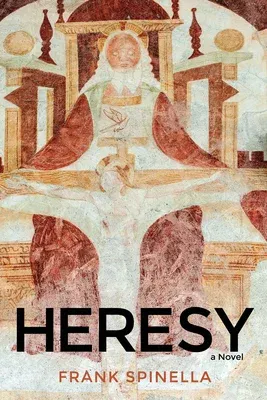It is early in the fourth century AD, and Christianity has become a
religion in search of a theology. Roman persecution has ended, but
doctrinal debates threaten to tear the church apart as the early church
fathers strive to solve a mystery inherited from their apostolic
tradition: how both Father and Son might be thought of as God, and yet
as distinct, without doing violence to the tenet that God is One. Enter
Arius, a Libyan priest who comes to Alexandria to preach an answer: that
the Son of God is a created being of a different substance than the
Father, and not fully divine. When the Archbishop condemns his teachings
and banishes him from the city, Arius' local apostacy expands into a
worldwide schism as bishops and clergy throughout the Mediterranean
world take sides. Desperate to use the religion as a force for political
unity, the Christian emperor Constantine calls a convention of bishops
at Nicaea to resolve the dispute. As debate begins, a consensus answer
seems out of reach--until a young Alexandrian deacon presses a solution
that will forever shape orthodoxy in a different direction. "No question
but that the teachings of Arius almost won the day in fourth-century
Christianity, as many were converting to his belief that Jesus was more
than a man yet less than God. In Heresy, Frank Spinella brings to life
all the passion and drama surrounding the Council of Nicea, which
debated the issue, in a brilliant manner that stays as close to the
facts as possible. Here is a theological thriller that will prod anyone
to ask, 'what if Arius had won?'" --Paul L. Maier, author of The
Constantine Codex Frank Spinella studied philosophy and law at Cornell
University and has been a practicing trial lawyer for over thirty years.
He is the author of The Cloak and the Parchments (2009).


